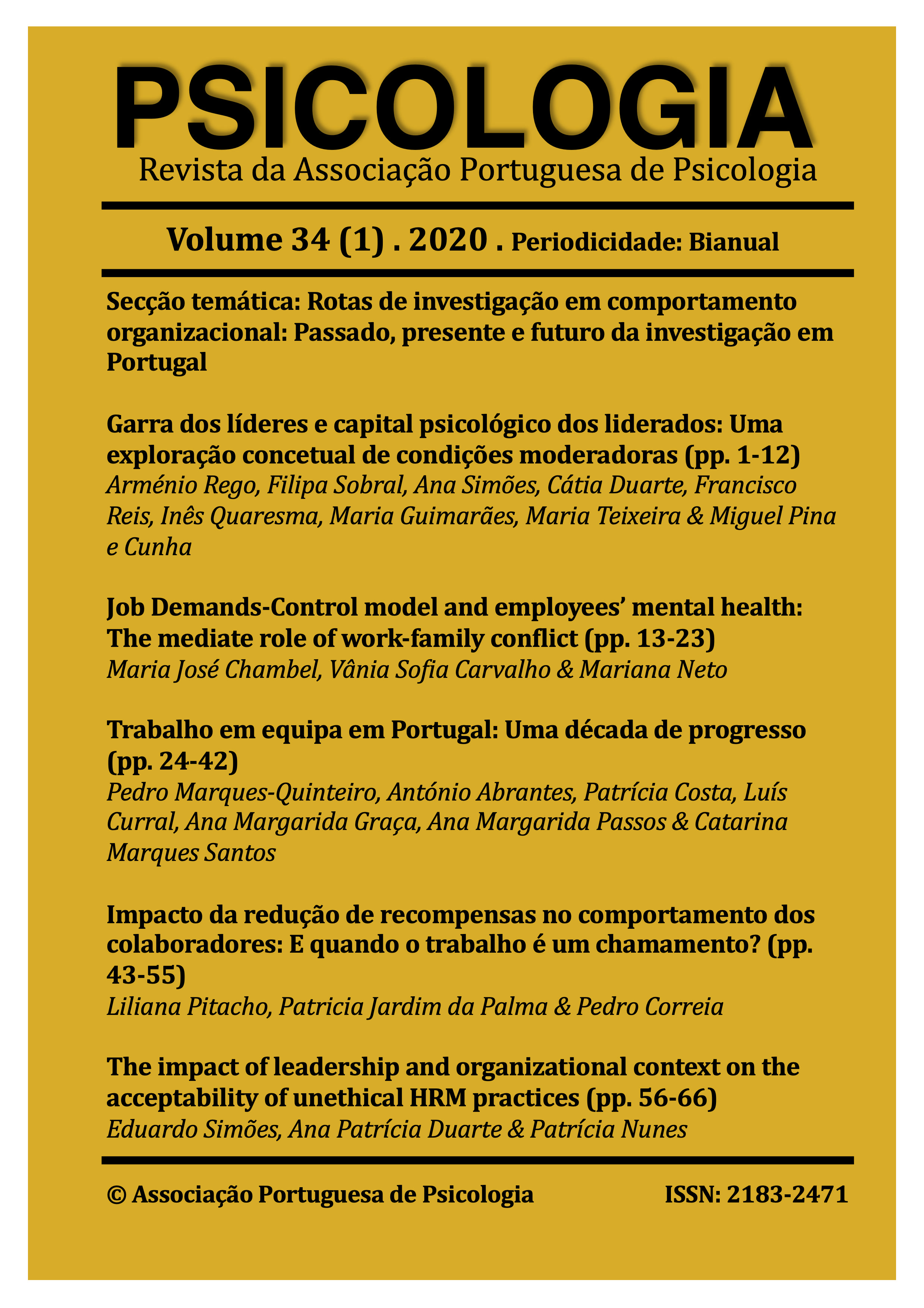O impacto da liderança e do contexto organizacional na aceitabilidade ética de práticas de gestão de recursos humanos
DOI:
https://doi.org/10.17575/psicologia.v34i1.1471Palavras-chave:
Ética, práticas de gestão de recursos humanos, infraestrutura ética, responsabilidade social das organizações, liderança éticaResumo
Pesquisa recente verificou que os profissionais de Recursos Humanos (RH) julgam a aceitabilidade de práticas eticamente questionáveis com base na importância que a sua organização atribui à infraestrutura ética e às práticas de responsabilidade social. Este estudo avaliou os efeitos da liderança ética e dos fatores mencionados sobre o modo como outros atores organizacionais, que não os profissionais de RH, julgam a aceitabilidade de três práticas eticamente duvidosas de gestão de RH: discriminação, desrespeito pelo indivíduo e favorecimento de quem está no poder. Os resultados indicam que a liderança ética está negativamente associada à aceitabilidade das três práticas. Os indivíduos provenientes de organizações nas quais a infraestrutura ética é mais forte também consideram as práticas de discriminação e de desrespeito pelo indivíduo menos aceitáveis. O mesmo é verdade para os participantes de organizações percebidas como mais socialmente responsáveis em relação aos trabalhadores e no domínio económico.


